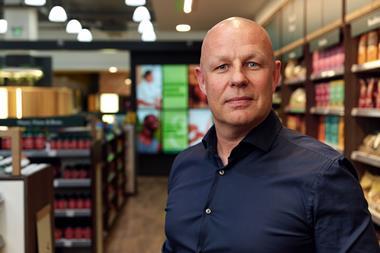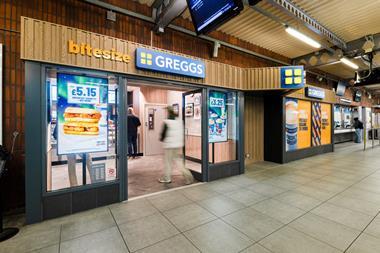The wheels are in motion for a bold and costly new police operation to crack down on the shoplifting epidemic currently rife in retail: Project Pegasus.
The first of its kind, Project Pegasus will bring supermarkets and retailers together to fund a team of intelligence analysts within the police force. The newly funded resource will look at serious organised crime groups, who it is believed are the main culprits behind the recent shoplifting scourge.
Until now, there has been negligible national police focus on gangs targeting retail. This is therefore a welcome move and one Sussex PCC Katy Bourne describes as representing a “real collaboration between policing and the private sector”.
So far, £600,000 has been pledged towards the Pegasus pot. The retailers involved will join forces and share data with the analysts to create a vital national picture of where shoplifting gangs are operating and what stores they are targeting.
They are working based on the theory: the more evidence there is, the better the conviction can be.
It’s a difficult situation and arguably one for which retailers should not be footing the bill. Nonetheless, it’s also been a long time coming, really – given the crisis has now been dubbed a ‘shoplifting epidemic’. That’s because retailers across the sector – from grocery to high street and local shops – have all felt the pinch. Literally.
BRC’s Crime Report 2023
It is costing retailers nearly £1bn a year, according to the British Retail Consortium, with the sector recording eight million incidences of shoplifting during the 12 months to March.
But loss of stock isn’t as serious as it gets. Shop theft remains a top trigger for violence and abuse in stores, which is another strain workers and retailers face.
The police have been accused of inaction, leading retailers to lose trust in the force, with just 56% saying they have faith in a police response. That’s according to the BRC’s Crime Report 2023, which states a lack of confidence is one reason behind a drop in retailers reporting crime.
It’s a vicious circle that has effectively led to, as Asda chairman Stuart Rose put it, shoplifting being “decriminalised”.
At least now retailers and police are working together and combining their resources to curb the shoplifting scourge. But let’s not overstate the crux of what Pegasus means.
In essence, it is just another string to the bow for retailers to provide information to the police in identifying repeat offenders – just in a more holistic manner to capture shoplifting gangs. Yet at a further financial cost to the sector.
The principle, though, is it could prove that reporting and gathering evidence remains key, which isn’t an exclusive strategy to tackling crime on a national scale – it can work on a local level too.
Police need to better on commitment
That’s the encouragement independent convenience retailers need to hear. It’s no secret they are also in the firing line against the rising tide of retail crime – they just don’t have the same means to fund big projects like Pegasus.
Their biggest barrier, however, is a reluctance to report to police. In the convenience sector alone, only 16% of all retail crime is reported, according to the ACS Crime Report 2023, which is again spurred by a lack of faith in police response.
It’s hard to blame them. But nonetheless, it needs to change. Because once retailers begin to regularly feed actionable information to the authorities, it could help to tackle the issue.
Take what Nottingham Police is doing, for example. It develops ‘most wanted’ shop thieves lists in consultation with retailers, meaning police can gain a much better picture of all the offences an offender is carrying out in that area. The main difference between this and Pegasus is the focus on the type of offender, given convenience retailers are more targeted by those motivated by drug and alcohol addiction, rather than large organised criminal gangs.
It remains a two-way street, of course. Retailers need to report more, and police need to better their commitment to them.
But if Pegasus works – by using retailer data and funding to bring tougher convictions to offenders – independents might finally acknowledge the value behind being more proactive with police. And vice versa. Then there might finally be light at the end of the tunnel.

























No comments yet